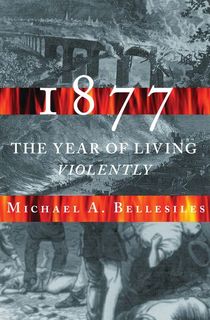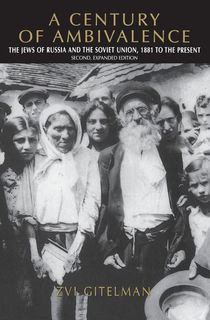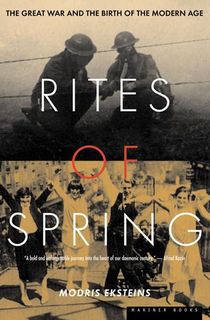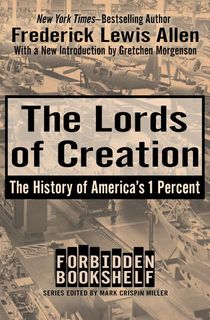What exactly is "modern history?" Even among historians, definitions vary widely. In general, it refers to a period that exemplifies the technological innovation, governance, and social, economic, and cultural changes which most directly shaped the world as we know it today. However, because the world is so vast and diverse, with regions progressing at difference paces, it's not so easy to narrow that period down. For the sake of this article, we'll look at history through a Western lens, dating modern history from the 18th century to the present day.
Related: 25 World History Books That Will Give You a New Perspective
From American soil to far-off China, the past 300 years have seen major developments, both in terms of technology and social thought. Here are eight gripping modern history books that explore the events that set the stage for our lives today.

1877
A decade after the Civil War ended, America was steeped in a deep economic depression. But that's not all the divided country faced. The US was also in the throes of inconceivable violence and upheaval. The Reconstruction period had ended, and white supremacist mobs rippled across the South in the wake of the contested presidential election of 1876. Things only escalated as a railroad strike involving millions of workers spread from coast to coast, threatening the nation's economy as it turned violent.
In this riveting book, historian Michael A. Bellesiles explores the dramatic turmoil of 1877, utilizing the perspectives of both famous figures and lesser-known Americans. Follow the deeply troubled journey of the divisive year that led to huge leaps in cultural and intellectual innovation.

A Century of Ambivalence
A century ago, roughly five million Jews lived in the Russian Empire, making them the largest Jewish community in the world. Now, the Jewish population of Russia has been reduced to half a million, yet they still remain the third-largest Jewish community in the world. In the past century or so, Russian Jews have faced some of the most turbulent events in modern history, including two world wars, revolutions, pogroms, political liberation, repression, and the USSR's ultimate collapse. They experienced rapid highs and lows through social and economic mobility, grappling with great victories tangled up in terrible disappointments.
In addition to the striking narrative detailing the strength and perseverance of the Russian Jewish community, this book includes more than 200 photographs from the archives of the YIVO Institute for Jewish Research.

Enemies and Neighbors
This text draws on an array of sources, from declassified documents to oral testimonies, to explore the Israeli-Palestinian conflict from both sides. Starting with the Balfour Declaration of 1917, in which the British government supported making a national home in Palestine for the Jewish people, author Ian Black proceeds chronologically through history to touch on the Holocaust, the Palestinian Nakba, Israel’s settlement project, two Intifadas, the Oslo Accords, and more events that contextualize the strife and violence of today.

Rites of Spring
World War I is hardly a forgotten moment in time, but it can't be overstated how drastically it influenced the course of modern history. Encompassing the origins, impact, and aftermath of the Great War, this gripping read tracks the profound shifts in thought which followed this earth-shattering conflict. Touching on everything from the premiere of Igor Stravinsky’s ballet The Rite of Spring in 1913 to Charles Lindbergh's transatlantic flight, this work gives perspective to these changing times through the lens of literary works, major events, and the words of average people.

The Lords of Creation
Once the Civil War came to an end, America saw decades' worth of rapid corporate expansion. However, this boom in financial power rested in the hands of only a few wealthy industrialists. The Rockefellers, Fords, Morgans, and Vanderbilts were just some of the magnates who controlled—and exploited—the country's economic future, unburdened by regulations and moral imperatives. But as they shaped the United States and its economy as they pleased, they set the stage for the stock market collapse of 1929 and the Great Depression that followed.

The Unbound Prometheus
What has changed the course of global history more than the Industrial Revolution? It all began in Great Britain in the mid-18th century, but spread quickly to other parts of Europe, including France and Germany. While this book weaves the well-known account of the political, economic, and social implications of this industrial boom, it also poses the highly contentious question: why was Western Europe the first region of the world to industrialize?

Mao’s Last Revolution
Until 1966, China was a typical communist state with a tightly-controlled population. However, the Cultural Revolution saw Mao unleashing the Red Guards against the party, resulting in tens of thousands of officials humiliated, tortured, and killed. The military pushed back against this disorder with just as much brutality. This book explores why Mao masterminded and launched the Cultural Revolution, diving into the Hobbesian state that followed as the movement spun out of control.

The Life and Death of the Spanish Republic
In 1940, Henry Buckley, a correspondent with the Daily Telegraph, published his eyewitness account of the Spanish Civil War. Most of the copies of this book were destroyed during the London Blitz. Luckily a few copies survived, making it possible for the exceptional documentation to be available all these decades later.
The Life and Death of the Spanish Republic is a unique account of Spanish politics throughout the entirety of the Second Republic, combining personal recollections of meetings with the great politicians of the day with eyewitness accounts of dramatic events. This important book is one of the most enduring records of the Spanish Civil War and a monumental testament to Buckley’s work as a correspondent.



